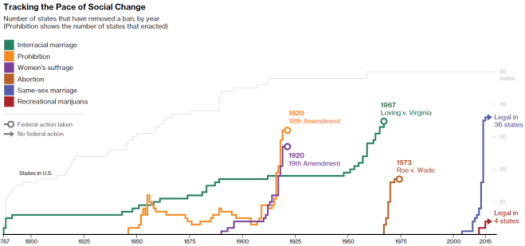Last month, Scott Walker explained to conservative talk-show host Sean Hannity that immigration policy should be based, first and foremost, on “protecting American workers and American wages.”
The next president and the next Congress need to make decisions about a legal-immigration system that’s based on, first and foremost, on protecting American workers and American wages. It is a fundamentally lost issue by many in elected positions today, is what is this doing for American workers looking for jobs, what is this doing to wages, and we need to have that to be at the forefront of our discussion going forward.
Presumably, he means that immigration drives down wages and hurts Americans in low-wage jobs. At least, that’s what any intelligent person should take away from such comments. I suspect he’ll deny he said all this in the coming months.
But even so, I’m not content to believe this is his actual view. That’s changed a few times in past years. For all the good he’s done in Wisconsin, Walker’s sure panders hard when faced with the prospect of a presidential campaign.
All that aside, though, what frustrates me most about this has nothing to do with Walker himself, but with the blatant, ignorant stupidity of such a view—the idea that immigrants drive down wages and hurt lower-class Americans and that we need government to make sure this doesn’t happen.
I’ve written about all this before after David Brat made a similar argument last year. He was just as wrong. I’m not going to rehash my whole argument here (you should read it, though), but here’s a few quick questions for Walker:
- Why is it bad that immigrants drive down wages? Isn’t it good to have a flexible and diverse supply of labor?
- Socialists have, for a century, made the same argument you’re making. Are they wrong? Are you a socialist on immigration?
- Instead of limit immigration, why not raise minimum wage by a few dollars? It will have the same effect—it will keep wages high and make many illegal immigrants virtually unemployable.
In case anyone doesn’t get me, I’m not arguing in that third question that minimum wage is good. Minimum wage is bad (as I explained here), and I think Walker would at least lend lip service to that idea. I only frame the question that way to show that Walker is all confused.
In this vein, here’s a great meme I came across today. Pardon the French.


